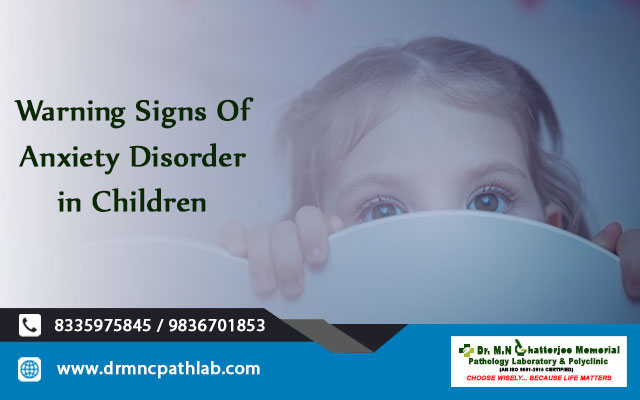Anxiety is a typical human emotion. A child frequently feels stressed out, dreads having to do things, feels overloaded with tasks, worries about being evaluated at school, and gets anxious as homework due dates draw near. A moderate amount of anxiety can spur action and success, but excessive anxiety can be debilitating.
Does your child struggle with uncontrollable anxiety? It can be difficult to identify the symptoms, especially if you’ve never experienced them before. In today’s blog, a super specialty polyclinic in Hooghly has pointed out the common symptoms of anxiety in children.
What Are the Signs of Excessive Anxiety?
A constant, unpleasant feeling of fear is called anxiety. Your kid’s thoughts, feelings, and emotions might be affected, as well as their physical experience. One might experience a variety of physical symptoms as a result of it, such as headaches, sweaty palms, heart palpitations, and nausea.
When Should Your Child Get Help?
When fear starts to creep in, the human autonomic nervous system sends signals, which are designed to act as the main mechanism for your fight-or-flight reaction. How will your child recognize the moment when to require therapy, then? Let’s hear the symptoms from the best doctors available in Hooghly.
- Your child is no longer having fun with things
Even if your child has a fear of certain subjects, they didn’t always dread going to school. However, they now experience a great deal of anxiety when participating in activities and gatherings that they once enjoyed both personally and socially. They either completely avoid them or tolerate them less amicably than before.
- They Avoid Risky Behavior
Risky behaviors are those that frighten a person. For instance, because they are aware that talking to them will make them anxious, your child may avoid certain teachers or classmates.
- They Have Ceased Exchanging Ideas
Thoughts, feelings, ideas, and opinions still exist in your child even if anxiety seems to be taking over their life. They want to share them, but they hesitate because they don’t want to offend or offend someone else or make a counterargument.
As a result, your child continues to be mute and compliant. They would rather hide their emotions than voice them and possibly arouse hatred.
- Wait, Physical Symptoms Exist Too
Because the physical symptoms of an anxiety or panic attack can resemble those of cardiac arrest, it’s not uncommon for someone experiencing these symptoms to mistakenly believe they are having a heart attack. Here are a few instances:
- Breathing problems
- Legs shaking
- Heaviness in the heart
- Rapid bursts of cold or heat
- The chest pain is very bad.
Takeaway
In conclusion, if anxiety significantly interferes with your child’s life or causes a lot of distress, it’s an anxiety disorder. You can get more information about anxiety disorders and better coping mechanisms from an MNC Pathlab, a leading doctor’s clinic in Hooghly.

